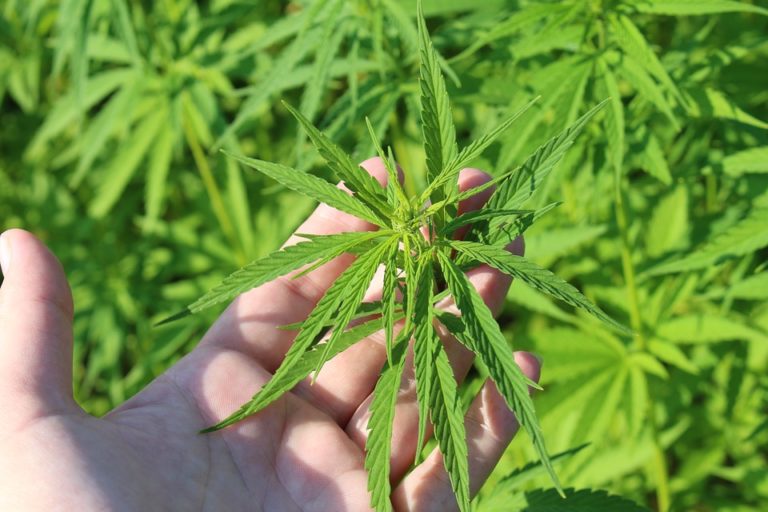
Ever since cannabis was legalized in Canada in 2018, there have many questions regarding its effects not only on smoking and driving laws but on insurance policies as well. Because renter’s insurance differs from home owner’s insurance, there are some conditions that may impact a renter’s policy if you choose to grow legal plants in your rental property.
What Renter’s Insurance Covers
Renter’s insurance isn’t a requirement but it helps to cover issues that the landlord’s insurance will not. The insurance policy paid for by the landlord only covers damage to the actual dwelling.It does not cover belongings or liabilities.
Renter’s insurance can help protect you from loss or damage to personal property as well as provide liability coverage in case of damage or injury due to negligence. For example, if you accidentally leave the sink on and flood the neighbor’s unit or if your dog escapes and bites a passerby.
When it comes to cannabis-related coverage, that area is a bit gray and what is covered and how it is covered can vary from company to company.
Cannabis Growth and Insurance Companies
Because cannabis legalization is a recent occurrence, most insurance providers do not have a lot of data on which to calculate risks. However, most do see marijuana growing as a high-risk activity due to the risk of fire, water damage, mold, vandalism, burglary and other potential structural damages.
While some may argue that this presumption is founded on stigma and misinformation, the assumption of potential risk is based on damages done to homes growing marijuana illegally. However, these are predominantly large, commercial-sized operations. Ultimately, there are currently no official inspection processes to confirm safe growing conditions.
Therefore, marijuana growing is considered “high risk” under the most basic home and renters policies.
Landlords and Cannabis Legalization
If you are looking to grow your own marijuana, within the legal plant limit, it is best to contact your landlord and your insurers to let them know. Although growing cannabis is legal, the landlord’s insurance on the building may not protect against damages related to growing the plants. If it doesn’t, you could be held personally liable for any damages caused.
Contacting your insurer will help to figure out if there is any special form of coverage you can add to your policy in the event that damage does occur.
Cannabis and Renters Insurance
While there is no “set-in-stone” set of rules for cannabis considerations when it comes to renter’s insurance, there are some factors to consider when growing your own marijuana plants that could affect your insurance policy:
- Coverage of plants and paraphernalia.
Some insurance policies will offer a premium to cover growing equipment such as lights and wiring – as long as you grow within the legal amount.
- Breaking cannabis laws.
Violating your area’s cannabis laws can lead to not only police charges but also denied insurance claims, increased premiums and even the cancellation of your policy.
- Home modifications.
If you plan on installing equipment designed to grow marijuana plants, you need to notify your insurance provider. Because this equipment involves an increased risk of fire and other damages, your insurer may offer appropriate coverage for an additional premium. Otherwise, if any claimed damage is related to the growing of cannabis, your company can deny your claim and cancel your coverage.
Cannabis Laws in Canada
On October 17, 2018, cannabis use was legalized in Canada. Canadians can now legally possess, purchase and consume marijuana. Purchasing must be made through a government-regulated store or website.
Residents of Canada can also grow marijuana plants for personal use. You can legally grow 4 plants (less than 100cm) per household – keeping in mind that this is not per adult.
The legal age for consuming cannabis is 19 years old, with the exception of Quebec whose legal age is 18 years old.
Laws regarding where you can legally smoke marijuana varies from province to province but you are allowed to consume within your home. Unless you are a renter or tenant – in that case, you need to follow the smoking rules set out by your landlord in the lease.
Growing Cannabis Safely
Since insurance companies consider the risks involved in growing marijuana for personal use, you can take some precautions to ensure that your growing setup is safe while posing a lower risk of damage.
Improper wiring of lights and fans are a serious concern when it comes to fire risk. Because you are growing plants within the legal limit, you may want to consider hiring a professional electrician to set up the electrical components of your equipment. Improper installation of circuit boards or cable sizing can lead to fire and damage.
Always place equipment away from a water source to avoid electrical issues and keep a close eye on any water tanks to ensure they don’t overflow and cause water damage. Keep in mind as well that a constantly damp room can cause rot and mold. It is best to waterproof the area’s floor and walls.
Also consider the gardening products you are using – they can cause serious health risks in an enclosed space. This is because some products contain chemicals that can physical harm to your and other inhabitants. Most fertilizers can be extremely irritating to the eyes, mouth or open sources. Always read the instructions and look carefully at the contents of the product. If there is risk of harm, closely follow the safety instructions and use protective gear.
Have questions about your renter’s insurance? Contact us today!


